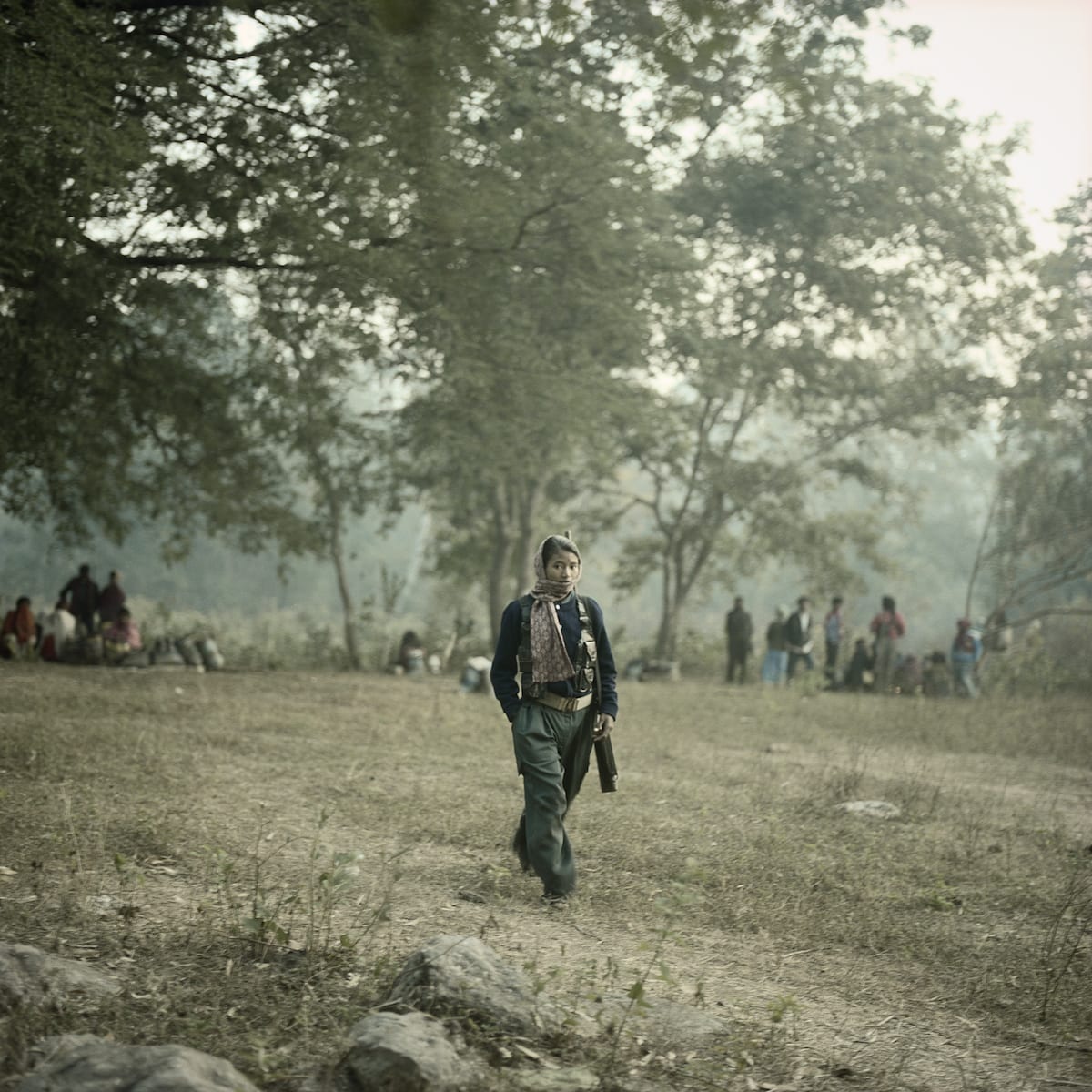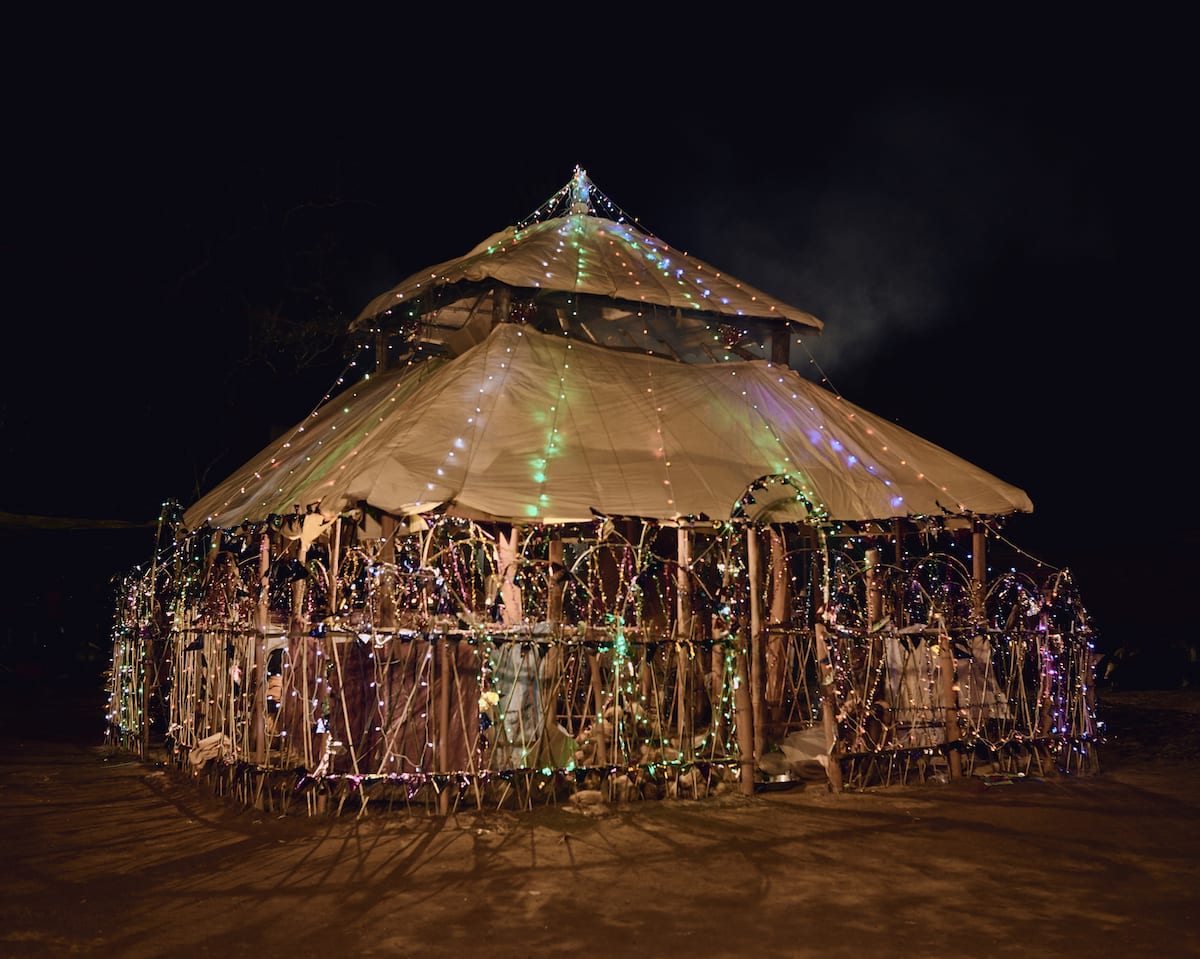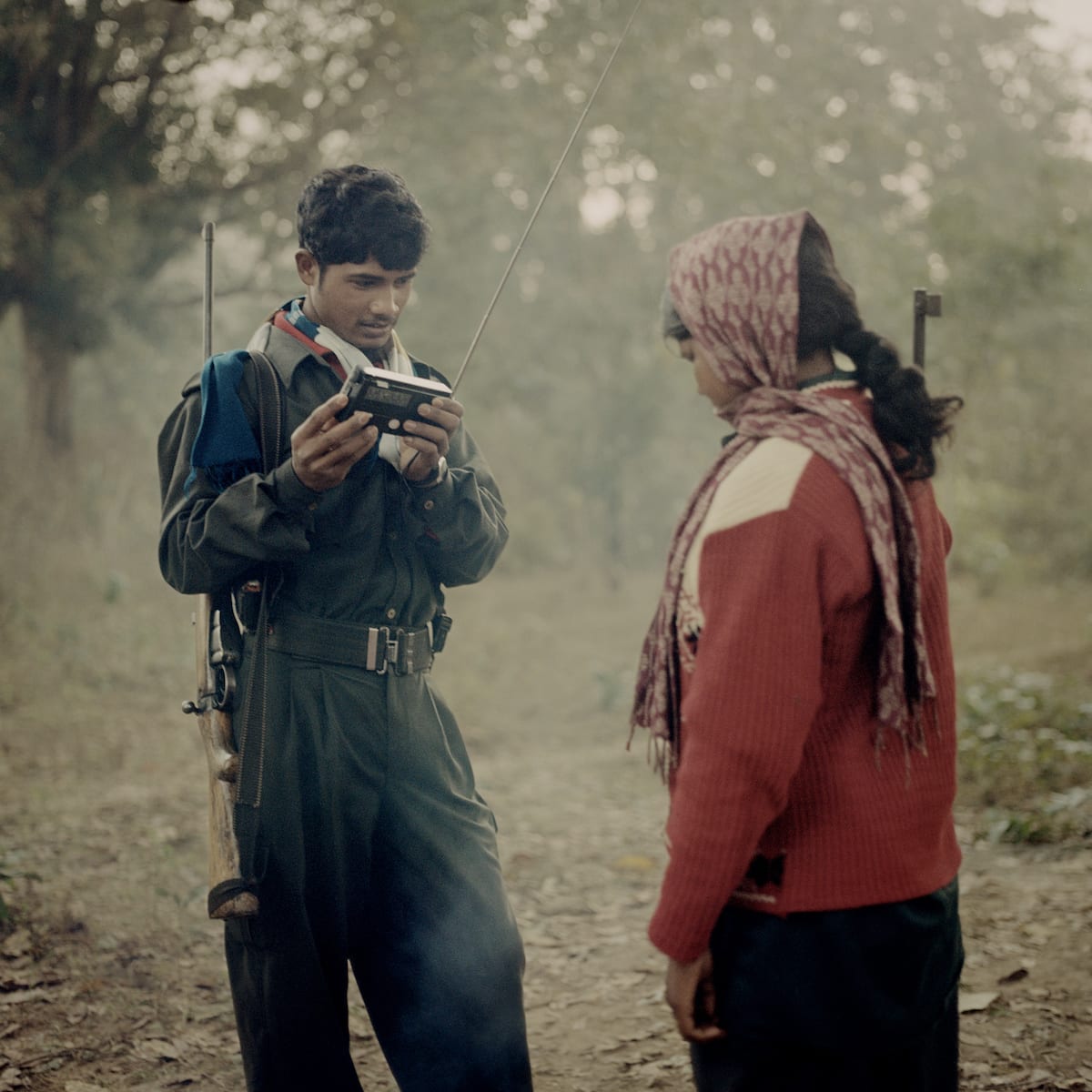The series draws on contemporary documentary practices to reflect the bewildering atmosphere of the region, using pictures of foreboding landscapes and festivities alongside images of locals uncovering crime scenes. Basu hopes the project will shed light on real narratives from the east, and force western viewers to see India without their cultural preconceptions.
Basu has become known for documenting women’s experiences in isolated communities and conflict zones. In 2017, her series A Ritual of Exile was shortlisted for the Tim Hetherington Trust Visionary Award, and also earned her the Magnum Emergency Fund grant in 2016. Last year, Centralia was shortlisted for the Mack First Book Award.

Can you tell me about your IPA shortlisted series Centralia?
Centralia is the tale of a fractured landscape in extremis. It’s about the shifting planes of reality: an India of the mind, a place both hyper real and metaphorical; familiar yet alien. Centralia is a passage deep into the forests of central India where a little known and under reported conflict between a Maoist guerrilla army and the Indian state slowly simmers.
How long did it take you to create this body of work?
Centralia is a project that has evolved over a number of years, since 2010. My work as a documentarian developed through a long process of immersion in the story. I have gradually come to terms with the various actors and scenarios that govern and regulate this conflict. I have also grown to understand the wider philosophical implications of this scenario, and have developed a visual and narrative strategy to communicate its nuance and complexity.
What inspired you to put this project together?
As with all my work, I am drawn to scenarios with which I have a deep personal connection. There are often parallels between the journeys that the characters in the stories take, and my own story. The Maoist movement violently erupted during the 1960s. College Street in Calcutta, where I grew up, was the epicentre of the movement, and during this time the streets surrounding my house were burning. I also discovered that my father was sympathetic to the Maoist cause. Centralia is a prism within which I can explore contemporary India through my own connection to both historical and present events.

How does this project tie into, or depart from, your previous works?
All of my work is linked through an interplay of violence, state power, and gender. Each could be seen as existing within a state of emergency, where emergency is synonymous with tragedy and violence. Centralia looks to reframe the internal narratives of the civil war in India within a wider global context. Employing a variety of narrative techniques, this work looks to shift the discourse away from Orientalist preconceptions and neocolonial cultural appropriation, to develop a new ontology of Indian experience.
My methodology is deliberately disjointed. The viewer must reconstruct several conflicting storylines and interrogate the narratives, which take the form of a dialogue between a number of characters. I wanted to find a way to actively involve the reader in the process of understanding. Such destabilising and remixing of narratives questions the neo-colonial framework within which subcontinental issues and conflicts are represented. This questioning is at the heart of my all of my work.
What is your next project?
I tend to work on multilayered projects that exist in variant forms. It’s an ongoing process of reimagining; of looking at work from another perspective; it reveals hidden dimensions and your journey goes a little deeper each time. I have never felt comfortable with one linear way of working. The work has to evolve and change direction depending on what is the best way of telling the story. One way to do that is to never assume a story has an ending.
With Centralia, I am working towards a book. My other large scale project, Blood Speaks, which involves VR, AR, an installation and a book, will be premiering later this year. This is something I have been working on since 2013, so it will be very exciting to present it in its most comprehensive form.

What does it mean to be shortlisted for the International Photography Awards?
I am extremely excited to be shortlisted. The IPA is the only award that does not have limiting categories or rules, which really challenges photographers to come up with daring and visionary work.
Although my work links to a global narrative, I am still an artist from the east, and my narratives reflect this in terms of cultural specificity. Often western media institutions are only interested in recognising work that reflects their own culturally appropriated view of the east. Of course I am excited to be shortlisted, but I am more thrilled to see a narrative that deals with a more complex and nuanced view of the east being recognised by the award. For me, this feels very significant.
Would you like to exhibit your work in a solo show at London’s TJ Boulting gallery? The deadline for applications for the 2019 edition of BJP International Photography Award is 20 December 2018 – 4pm GMT. Apply now!
